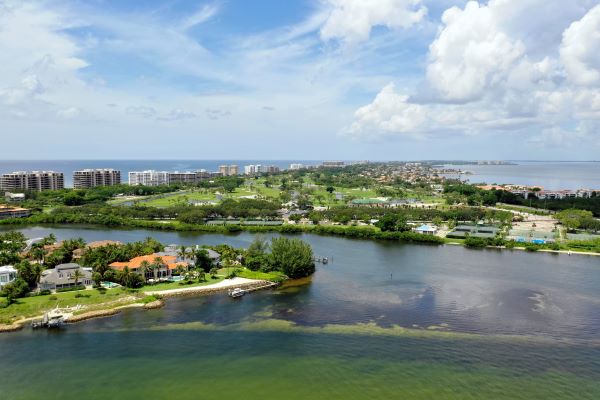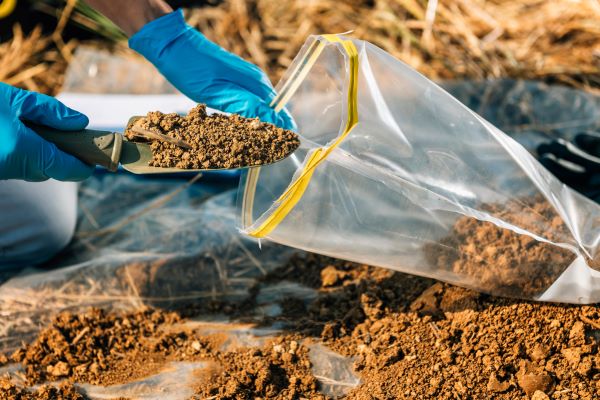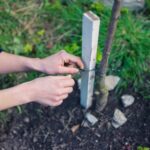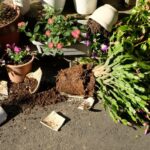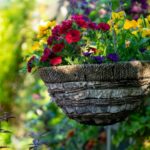Fertilizing your garden is essential for healthy, vibrant plants, but in Florida, it’s crucial to do it right. Improper fertilization can contribute to nutrient runoff, harming local waterways and ecosystems. The Florida-Friendly Landscaping™ principle of fertilizing appropriately helps homeowners balance the needs of their plants with environmental stewardship. Let’s explore how to make the most of your fertilizer while keeping Sarasota’s natural beauty intact.
Why Fertilization Matters in Florida
Florida’s sandy soil often lacks nutrients essential for plant growth, but over-fertilization can lead to serious environmental issues. Excess nutrients, like nitrogen and phosphorus, can leach into waterways, fueling algal blooms that threaten wildlife and water quality Environmental Impact: Proper fertilization practices protect Sarasota’s waterways, helping maintain the delicate balance of our local ecosystems
The Basics of Fertilizing Appropriately
1. Choose the Right Fertilizer
- Use Slow-Release Fertilizers: Slow-release formulas provide nutrients gradually, reducing runoff and the risk of over-fertilizing. They’re especially beneficial for sandy soils that can’t hold nutrients well.
- Troy’s Custom Blend: For Sarasota gardens, Troy’s Custom Blend is a specially formulated option designed to meet Florida’s distinct soil needs, offering sustained nourishment while minimizing environmental impact
2. Apply at the Right Time
- Seasonal Considerations: Fertilize only when plants are actively growing. In Sarasota, that typically means spring and fall. Avoid fertilizing during Florida’s rainy season (June through September) to prevent nutrients from being washed away
- Local Regulations: Be aware of any fertilizer bans or restrictions in your area, especially those protecting waterways from nutrient runoff during peak rain months
How to Fertilize Properly
1. Test Your Soil
- Why Soil Testing is Important: Conduct a soil test to determine nutrient needs and pH levels. Knowing your soil’s makeup can prevent unnecessary fertilization.
- Where to Test: The UF/IFAS Extension offers soil testing services to help you understand what your garden truly needs
2. Use the Correct Amount
- Follow Label Instructions: Always measure fertilizer carefully and adhere to the recommended application rates. Using more won’t make plants grow faster; it just increases the risk of nutrient pollution.
- Grass Clippings and Compost: Consider organic alternatives like compost or use grass clippings to enrich the soil naturally
3. Keep Fertilizer Off Hard Surfaces
- Sweep, Don’t Rinse: If fertilizer spills onto driveways or sidewalks, sweep it back onto your lawn or garden. Rinsing it away sends nutrients directly into storm drains and local waterways
Tips for Different Plant Types
- Lawns: Use fertilizers with a low phosphorus content unless a soil test indicates a deficiency. Opt for fertilizers with at least 50% slow-release nitrogen to minimize leaching
- Flowering Plants: Use balanced fertilizers and consider flowering plant formulas that include micronutrients for vibrant blooms.
- Edibles: Vegetables and fruits may require more frequent fertilization. Organic options, like composted manure, work well for vegetable gardens
Reducing the Need for Fertilizers
- Mulch and Organic Matter: Adding organic mulch or compost improves soil structure and nutrient-holding capacity, reducing the need for synthetic fertilizers over time.
- Plant Native or Florida-Friendly Species: These plants are adapted to local conditions and require fewer nutrients, making them easier to maintain sustainably
Conclusion
Fertilizing appropriately is key to a thriving garden and a healthy environment. By following these practices, you can keep your landscape lush while protecting Sarasota’s waterways. For more information on eco-friendly fertilization and to get your hands on Troy’s Custom Blend, visit Troy’s Tropics. We’re here to help you create a beautiful, Florida-friendly garden!

